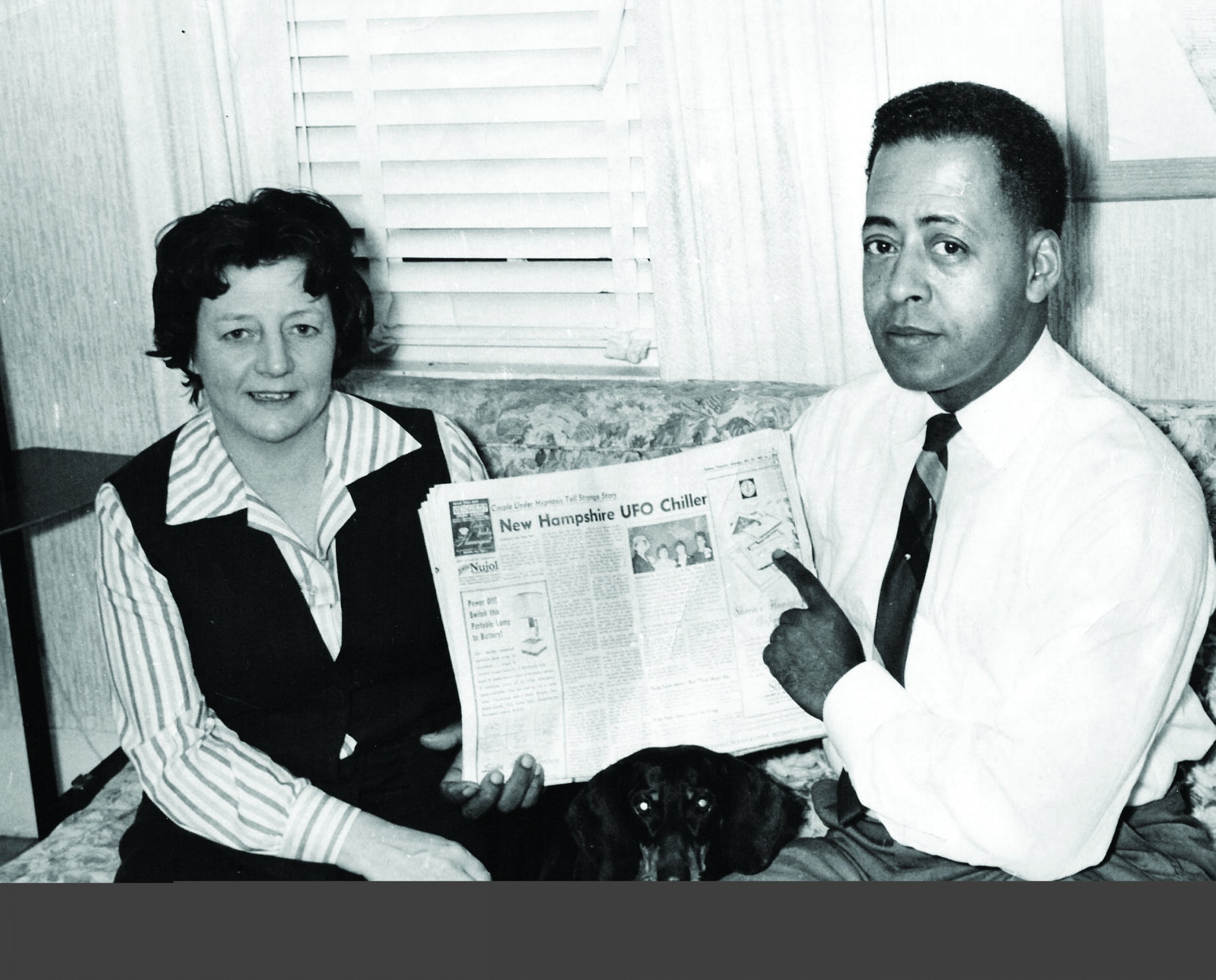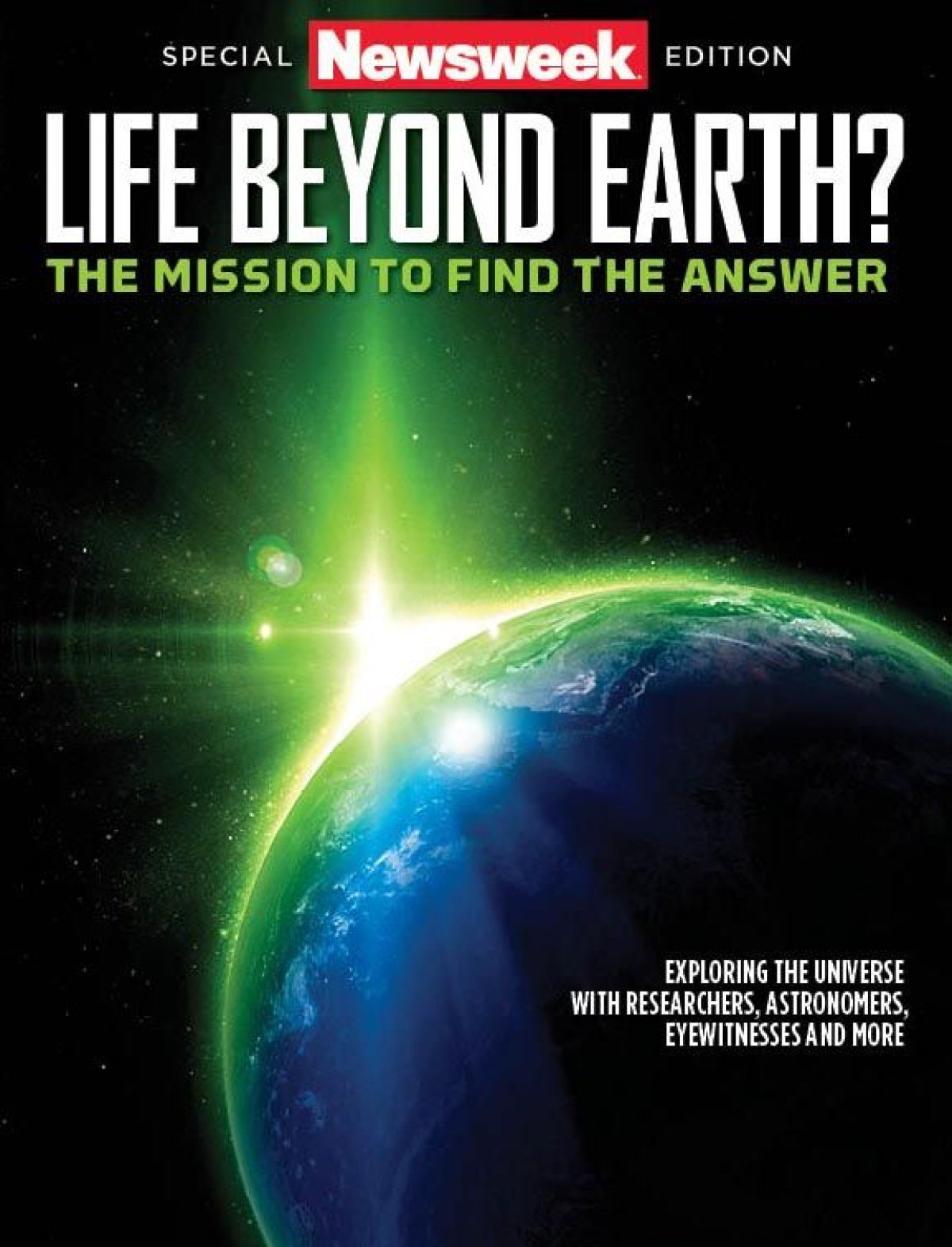
This article, along with others exploring the possibilities of alien life and other mysteries hidden beyond the stars, is featured in Newsweek's Special Edition: Life Beyond Earth? The Mission to Find the Answer.
The phenomena of UFO abductions is familiar to everyone—even if the experience of one has only ever been secondhand at best. But the ubiquitous perception may be largely inaccurate, stemming from the likes of hackneyed depictions in sci-fi films and clickbait fabrications on the internet. That's unacceptable to the small but dedicated group of individuals who have pledged their lives to solving this mystery. "I continue my research no matter what, and nothing's going to stop me, nor will it stop others in the field," says Denise Stoner, one of the world's leading authorities on UFO abduction reports and a member of the Mutual UFO Network's (MUFON) Experiencer Research Team. Experts in the field know that the truth about abductions, whatever it may be, lies within the reports from thousands of people in dozens of countries.
For more than half a century, Americans have reported experiencing UFOs in an up close and personal way that alters their lives forever. In 1961, a media frenzy occurred when Barney and Betty Hill described the night a UFO containing several humanoids hovered directly above their Chevy Bel Air on a rural New Hampshire road. The couple claimed the rest of their drive was a hazy state of altered consciousness, but Betty's inexplicably stained dress and Barney's mysteriously scuffed shoes served as mementos of the experience. Another landmark case occurred in 1975, boasting the benefit of witnesses. During a logging job in the Apache-Sitgreaves National Forest in Arizona, Travis Walton was struck by a beam from a mysterious craft as his crew looked on. He would disappear for five days until resurfacing some 30 miles away at a gas station—all while his crewmates proved their innocence in the matter by passing polygraph tests. Both cases, which only represent the tip of the iceberg concerning UFO abduction reports, remain a mystery to UFO researchers.
Some details may differ slightly from account to account, but the fundamental elements are intact in every encounter, fueling validation for both abductees and researchers. "All accounts are essentially the same," says Dr. David M. Jacobs, author of books such as Secret Life: Firsthand Documented Accounts of UFO Abductions and Walking Among Us. Speaking from decades of experience in the field, Jacobs feels the common ground spanning the litany of cases gives considerable weight to each new report.
While Denise Stoner investigates many local reports for MUFON within Florida, where she resides, Jacobs's experience informs his insistence that UFO abductions occur worldwide. "It is a global phenomenon," he states. "It has nothing to do with the United States. We do not know if we are the center of UFO abduction activity." One of the earliest UFO abductions on record supports Jacobs' claim. The case of Brazilian farmer Antonio Villas Boas in 1957 has withstood even the most liberal application of UFOlogist scrutiny thanks to the intricate details provided by the abductee and the ceaseless physical ailments (including painful lesions) he suffered following the incident. Jacobs is certain the phenomenon has spread across the globe since then, noting that he has worked with abductees from nearly every continent—and they have all reported many of the exact same details. "That's extraordinary," he says. "That has never happened before in human history, where people will be saying, 'This happened to me,' and they'll describe the exact same instruments used and the same procedures involved, and everything else is the same as everyone around the world is describing. Christian, Muslim, Jewish, Hindu, all saying the same thing, all knowing full well that it sounds crazy."
Of course, researchers still do their due diligence to devote investigations to only the most credible of accounts. Any time an individual reports being abducted by a UFO, researchers first attempt to rule out mental illness as a cause. "When we first speak to an individual, we want to spend as much time as possible with them to discover whether or not they have ever had a diagnosis that includes mental issues, what kind of medication they're on," says Stoner. "There are several reasons for people to have these types of experiences, and we need to eliminate those when we're doing an investigation."
For the majority of his career researching UFO abductions, Jacobs has sought to root out any inconsistencies by conducting hypnotic regressions with abductees. Recognizing the skepticism surrounding a process that seeks to acquire information from hypnosis, he says, "It's so ridiculous, and yet it works." Jacobs explains that because the process spans over several sessions, trust is organically built between researcher and experiencer. "They don't want to tell me things that didn't happen," he adds.
As Jacobs learned the first time he conducted a series of hypnotic regressions with an alleged abductee, though, the truth can be elusive, even if the subject isn't trying to withhold it. He recalls working with a 7-year-old girl who claimed she was with a friend in the park when she felt arms wrap around her waist as she was suddenly pulled from the ground up into something. Now in an unknown setting, the girl noted seeing a humanoid with a pageboy haircut named Cosmo, who proceeded to place her on a table for a physical examination. Claiming she was then instructed to place her hand on the head of an extraterrestrial, the girl described feeling immense positivity and warmth. Before being returned to the park by Cosmo, the girl stated she met a group of extraterrestrials sitting at a table who told her she would live a "brave, courageous strong, wonderful life." Ecstatic by what he had extracted from the hypnosis, Jacobs went to transcribe the story from his tape recorder that night, only to find that the girl's mostly whispered words had not been picked up. Determined to capture the incredible descriptions, Jacobs had the girl retell the experience in a later session. She obliged, and the initial beats were consistent—the hands around the waist, the pageboy-haired Cosmo figure, the physical exam—only this time, there was no mention of placing her hand on the being's head or receiving the affirming words from the table of extraterrestrials. Jacobs prodded for the missing pieces, but the young abductee claimed she didn't remember those aspects and said she thought those things happened to the friend she was with at the time. "I knew at that time that I had no idea what I was doing, and I vowed I was never going to let that happen again," Jacobs says.
As with any skilled trade, such as performing brain surgery or writing computer code, experience is the way to limit the frequency of errors in researching UFO abductions. The greatest mistake someone in the field can make, it seems, is allowing themselves to be abducted by the blinding beam of naysaying critics. But Jacobs and Stoner are both far from ignoring their decades of research in favor of believing only what accepted science is able to explain.
Stoner points to some skeptics dismissively chalking abductions up to mere dreams as an example she feels is easily countered by her research. "We've had many, many abductions that took place in broad daylight. And if you're in broad daylight, and you're driving or walking and this happens, you don't have those excuses to give," she says. "You don't have people saying 'Okay, you were dreaming, you were asleep, you were this or that.' It happened, and there's no way that anyone can tell you it didn't."
For Jacobs, the uncanny commonalities across reports stand as the reason for continuing research. "We know the abduction phenomenon is considered to be completely psychological by 99.9 percent of all psychologists, psychiatrists, etc.," he says. "Except, of course, by those psychologists, psychiatrists, medical doctors and university professors who are themselves abductees and say the same things as the kid in Pakistan."
This article, written by James Ellis, Senior Editor, was excerpted from Newsweek's Special Edition: Life Beyond Earth? The Mission to Find the Answer. For more on the possibility of alien life and potential answers pick up a copy today.

Uncommon Knowledge
Newsweek is committed to challenging conventional wisdom and finding connections in the search for common ground.
Newsweek is committed to challenging conventional wisdom and finding connections in the search for common ground.
About the writer
To read how Newsweek uses AI as a newsroom tool, Click here.








